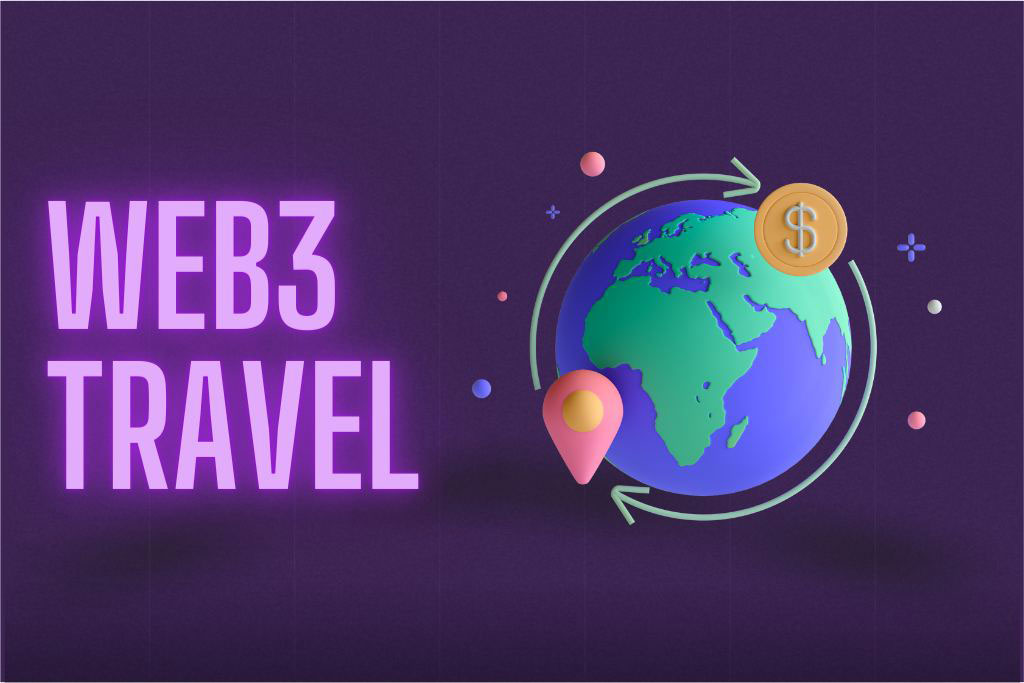
Please check out latest news, expert comments and industry insights from Coinspeaker's contributors.
Travel loyalty programs are pivotal in the travel industry, serving as a critical strategy for customer retention and revenue growth.
 Edited by Julia Sakovich
Updated
5 mins read
Edited by Julia Sakovich
Updated
5 mins read

The online travel industry is a dynamic and rapidly evolving sector. Over the past few years, it has experienced significant growth, driven by technological advancements, changing consumer behaviour, and the increasing globalization of travel.
According to a report by Spherical Insights, the global online travel market size was $354.2 billion in 2021 and is expected to grow to $1,835.6 billion in 2030 at a compound annual growth rate (CAGR) of 14.8%. This rapid expansion creates opportunities for innovation and disruption, particularly from companies harnessing the power of Web3 technologies.
However, the industry also faces several challenges. These include the need for seamless integration of various travel services, the demand for personalized experiences, and the management of vast amounts of data. This presents an opportunity for innovative solutions to enhance efficiency, improve customer experience, and drive growth.
Web3, the third generation of internet services for websites and applications, is increasingly becoming a game-changer in various sectors, including travel. Unlike Web2, with its centralized platforms and corporate control of data, Web3 is decentralized and transparent. This new paradigm of the internet empowers users, both individuals and businesses, by giving them more control over their data and the platforms themselves.
In the travel industry, Web3 companies leverage blockchain technology to offer solutions that disrupt traditional business models. For example, blockchain can enable secure and transparent transactions (especially across borders) and streamline supply chain management. Furthermore, one place where the potential of Web3 is becoming apparent is in loyalty programs in travel.
Travel loyalty programs are pivotal in the travel industry, serving as a critical strategy for customer retention and revenue growth. Loyalty programs also played a crucial role in boosting travel recovery after the COVID pandemic.
According to Future Markets Insights, this trend will continue. They project the tourism loyalty industry to grow from $24 billion in 2022 to $73.6 billion by 2032. This represents an increase of a 9.20% CAGR.
There are a few reasons why loyalty programs are critical for the industry. For one, they incentivize repeat business by offering rewards, such as points redeemable for travel-related services, fostering customer loyalty in a competitive market.
Beyond retention, these programs also enhance customer engagement, providing valuable insights into customer behaviour and preferences. Companies can then leverage these insights to personalize offers and improve customer experience.
However, traditional loyalty programs often operate in silos, making it difficult for customers to redeem their rewards across different platforms. This is wherein lies the disruptive potential of Web3.
Blockchain can address this challenge by providing a decentralized platform for managing loyalty points. This would allow customers to earn and spend their loyalty points across various travel services, enhancing the flexibility and value of these programs.
Furthermore, blockchain’s transparency can help enhance customer trust, as they can verify their points and transactions directly on the blockchain.
One of the companies that are hoping to make this a reality is Lingo, a Web3 startup in the loyalty tourism sector.
Founded by serial entrepreneurs HM Rawat and David Amsellem, the latter being the former founder of John Paul, a $150 million premium loyalty Paris-based company, Lingo has gathered a team of experts and advisors from firms such as Consensys, Expedia, Google, and Booking.com, to help disrupt the loyalty market with the power of blockchain technology.
At its core, Lingo operates more like a club for token holders rather than a traditional loyalty program. This club, powered by blockchain technology, offers unique benefits to earning and redeeming travel rewards.
These “miles” can be redeemed for hotel stays or air miles across various travel services. This way, Lingo also offers a level of flexibility that is lacking in traditional loyalty programs. This innovative model addresses a common frustration among consumers, who frequently find traditional products restricting.
In traditional loyalty programs, customers earn points or miles based on their purchases or engagements with a company’s products or services. These points are often tied to a single company or a group of partner companies, limiting where and how they can be used.
By operating as a token-based ecosystem, Lingo fosters a sense of community among its members. This represents a shift from the traditionally transactional nature of loyalty programs to a more participatory model. Users can earn rewards through various interactions within the ecosystem, including simply holding Lingo tokens. This encourages active participation and engagement, further boosting customer loyalty.
Blockchain holds holds significant disruptive potential for the loyalty programs, and the online travel industry as a whole. It is reshaping the traditional concepand addressing many current limitations.
Finally, the transparency and security inherent to blockchain technology also offer an increased level of trust and reliability for users. Customers can independently verify their transactions and rewards, fostering trust and increasing the perceived value of the program.
In sum Web3 technologies, have the potential to significantly disrupt the traditional dynamics of the travel loyalty industry. As it enhances customer experience, improves flexibility, and fosters trust, with companies like Lingo might pave the way for future innovation in the booming online travel industry.
Disclaimer: Coinspeaker is committed to providing unbiased and transparent reporting. This article aims to deliver accurate and timely information but should not be taken as financial or investment advice. Since market conditions can change rapidly, we encourage you to verify information on your own and consult with a professional before making any decisions based on this content.

Please check out latest news, expert comments and industry insights from Coinspeaker's contributors.





